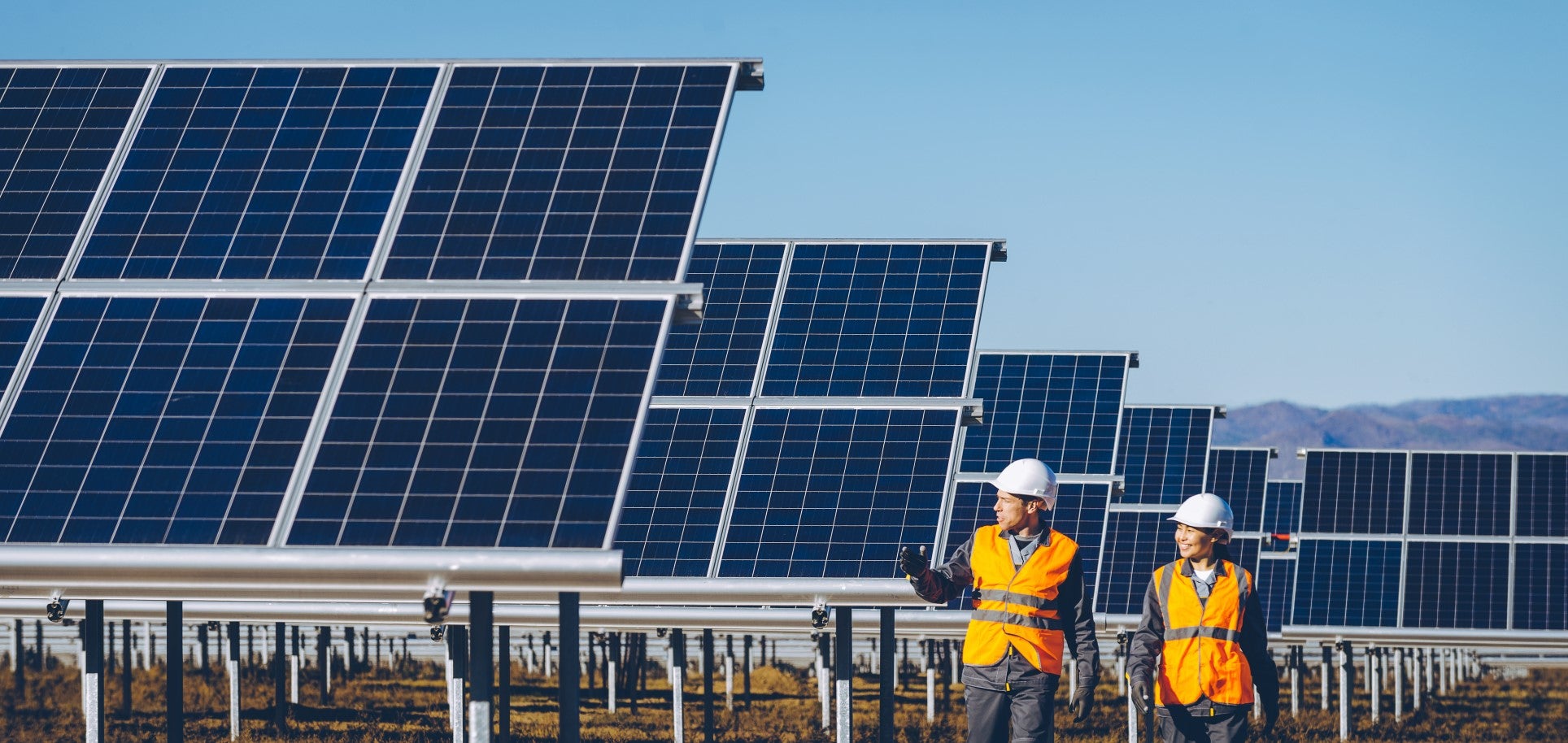We Helped a Solar Plant Hire More Women. Will the Industry Follow Suit?

The thrust toward renewable energy sources continues to grow. Projections by the International Renewable Energy Agency (IRENA) show that by 2030, jobs in the solar photovoltaic subsector will increase from 4.3 million to 14 million.
According to the agency, women comprise just over 40% of this labor force, and occupational sex disaggregation remains high since most female talent is engaged in administration, marketing, and other non-technical roles.
This subsector hires 47% of women in manufacturing but only 12% in installation. Globally, the barriers to entering the solar industry seem higher in Latin America and the Caribbean.
IDB Invest Sustainability Week 2024 - Register NOW!
Low levels of participation and leadership accrue to limited access to training opportunities to gain technical skills, gender-biased recruitment processes, and social norms that dictate gender-appropriate roles.
Therefore, the projected job growth in the subsector provides an opportunity to upskill current workers and shift existing profiles toward more significant gender equity in the global energy workforce.
Closing these gender gaps and ensuring the inclusion of women at all stages of the value chain requires strategic partnerships, as third-party agencies are involved in energy project recruitment.
Building leadership
Representing the island's inaugural solar project financing, IDB Invest, through its Advisory Services, played a pivotal role by supporting the engineering, procurement, and construction contractor, Inti Corporation Limited, in enhancing women's presence and technical capacity in the solar photovoltaic value chain.
The strategy involved collaboratively designing an inclusive recruitment and retention strategy to achieve a minimum of 10% female participation in non-traditional roles like civil, mechanical, and electrical works.
Additionally, gender-specific training programs provided by Inti in construction areas further contributed to positioning Lucayas as a leader in women's employment within the Bahamas' construction/energy subsector.
Additional reading
- Landmark Renewable Energy Project in The Bahamas Begins Operation with IDB Invest Support
- Overcoming Three Challenges to Unlock the Potential of Green Hydrogen
At the onset, Inti's signature on the Women's Empowerment Principles (WEP) tool was essential to concretizing its commitment to advancing gender equality, sensitizing the industry, and gauging receptivity to the project.
This signature demonstrated their understanding of the diversity and innovation that female presence can harness in the renewable energy sector.
IDB Invest supported the identification of a cohort of critical stakeholders for the gender-inclusive strategy. These included the Ministry of Labor, the Bahamas Technical and Vocational Institute, the Bahamas Contractors Association, the Bahamas Society of Engineers, and the Grand Bahama Port Authority.
This cohort provided unique insight into the resources required to:
- Influence skills training and academic streams for women's access to opportunities.
- Change the narrative around career paths socially normalized for women's involvement in technically non-traditional fields.
- Target the integration of Gen Z (late 1990’s – early 2010’s) in the construction sector.
The involvement of the Bahamas Contractors Association and the Bahamas Society of Engineers helped to build traction around the project and expand networks to create partnerships with industry players who could provide training, apprenticeship, and ongoing employment opportunities.
Women and resilience
Facilitating a female talent pipeline in the construction sector required the contractor to understand the obstacles to women's recruitment and gender-biased barriers within the construction environment.
This included an assessment of skill requirements and adaptations to recruitment and the workplace, such as gender-neutral language, separate bathrooms and modified uniforms, and their childcare obligations.

Following a stakeholder roadshow, Inti also held a job fair that specifically invited women. In one such fair, 20% of the candidates were women, 79% of them for non-traditional roles, and 21% in traditional or administrative positions.
Inti has since hired 13 women, 3 of whom are in the area of quality control, 2 in security, and 8 in mechanical roles.
This increased women's access to networks in technical and regulation bodies within the sector, leading to more women in the energy value chains.
Also, Inti committed to:
- maintaining gender-balanced interview and selection panels,
- a fully inclusive recruitment process and workplace with gender-disaggregated employment statistics,
- use the technical content provided by IDB Invest for its construction crew sessions as part of its health and safety awareness training in:
- defining gender,
- avoiding stereotypes,
- addressing sexual harassment and gender-based violence,
- raising awareness of the role of men in combating gender biases, and
- launch an internship program to build capacity among women and female students with aspirations in the construction sector.
Sharing lessons from successes like these promotes greater integration of women in non-traditional roles in the workplace. Greater female participation in the global energy workforce is good for business and key to developing a resilient and sustainable energy sector.

Latest posts
LIKE WHAT YOU JUST READ?
Subscribe to our mailing list to stay informed on the latest IDB Invest news, blog posts, upcoming events, and to learn more about specific areas of interest.
Subscribe



